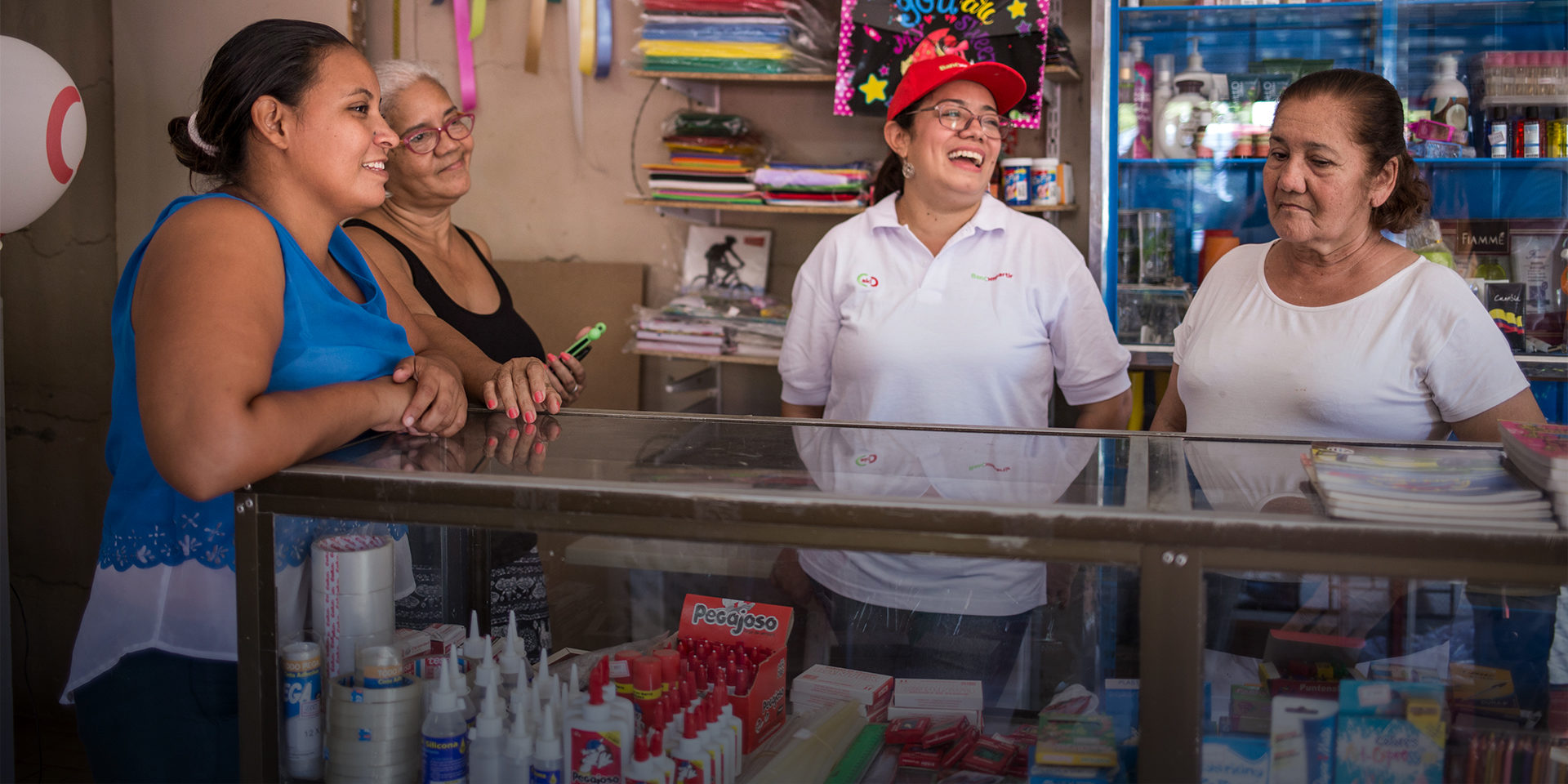
Chemonics News
News: Colombia Rural Finance Initiative Selected as 2022 Digital Development Award Winner
December 13, 2022 | 2 Minute ReadEach year, USAID recognizes projects that are collaborating with countries and communities to work toward sustainable growth and resilience in the digital age.
The Digital Development Awards (“the Digis”) recognize and celebrate USAID projects and activities that support inclusive development through digital technology. This year, the USAID Colombia Rural Finance Initiative (RFI) implemented by Chemonics was selected as one of five Digi recipients for developing a mobile phone-based system for rural smallholders and urban-based, low-income groups to conduct real-time, peer-to-peer financial transactions.
Decades of armed conflict in Colombia had left many people in poverty and without equal financial opportunities. Those living in rural areas and working in agriculture struggled to obtain financial services. This limitation compromised the ability of micro-, small-, and medium-sized agricultural producers and other businesses to improve their productivity and, in turn, inhibited the country’s overall economic growth. Between 2015 and 2022, RFI helped financial institutions connect more than a million new rural clients –half of them women –to formal financial services, contributing to more than $1.4 billion in new loans, savings, and insurance products.
To drive greater financial inclusion, RFI worked with ACH-Colombia, a digital payments and transfers company, to develop the Transfiya platform that would accept low-value financial transactions. Transfiya helped drive digital inclusion by enabling users from lower socioeconomic backgrounds to participate in the financial sector. This also allowed workers in the informal sector in both rural and urban locations to access capital that would allow them to grow their businesses and meet their financial needs. RFI supported this effort by awarding challenge grants to ACH-Colombia to stimulate innovation in the Transfiya platform’s development.
During the COVID-19 pandemic, the Colombian government used Transfiya to provide emergency subsidy payments quickly and safely, which increased its user base and demonstrated the core value of the system in reaching many of these traditionally disconnected or underserved populations via their digital and mobile devices. The benefits continued to accrue as more users adopted the system, and in 2022 alone, Transfiya processed more than 22 million transactions valued at $638 million.
“I am so proud of the Colombia Rural Finance Initiative team for their contributions to inclusive development through digital technology. By focusing on their key users and stakeholders, RFI was able to scale access to digital services to people previously without access to formal financial systems and services in Colombia. This includes lower income urban and rural customers working in the informal sector, such as micro-entrepreneurs, women, and vulnerable populations like the Afro-Colombian community. The role of locally led digital technologies and ecosystems continues to grow within the development sector, and we will keep working with our projects and partners around the world to pursue innovative digital strategies and technologies to help people live healthier, more productive, and more independent lives,” said Anna Slother, Chemonics’ executive vice president.
At Chemonics, we work with our projects, partners, and communities of practice in leveraging the potential of digital to achieve impact while strengthening open, inclusive, and accountable digital ecosystems. Colombia RFI joins our projects in Moldova, Uganda, Philippines, Pakistan, and Indonesia as Digi Awards recipients.
Watch the official 2022 USAID Digi Awards announcement video for more information about all of this year’s awardees.
Banner image caption: Women leaders from Bancompartir’s I’m a Leader (Soy Líder) program socialize. The bank trains and incentivizes community members to refer their neighbors for bank services, building trust and business. (Photo Credit: Rural Finance Initiative)






















































